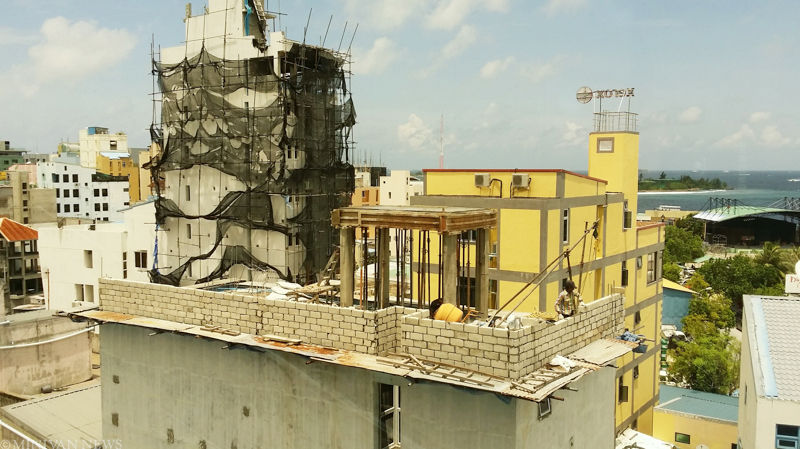Majlis passes new construction law, breaks for recess
The bill was introduced, debated, reviewed by a committee, and passed on the same day. After the normal sitting in the morning, Speaker Abdulla Maseeh Mohamed scheduled a sitting at night to vote on the bill.

17 Apr 2017, 09:00
The People’s Majlis broke for recess two weeks early on Wednesday after working overtime to pass a new construction law.
The construction bill was introduced, debated, reviewed by a committee, and passed on the same day. Speaker Abdulla Maseeh Mohamed scheduled a sitting at night to vote on the bill after it was debated and accepted for consideration at the normal sitting in the morning.
In between sittings, the national security committee approved the bill at a 30-minute meeting and sent it back to the floor. The bill was then passed with 44 votes from ruling coalition lawmakers without any opposition MPs of the 85-member house in attendance.
Opposition MPs had also walked out of the committee meeting Wednesday afternoon after a proposal by MP Ali Nizar of the Maldivian Democratic Party to restrict fines to a minimum MVR5,000 (US$324) for first-time offenders was rejected by the pro-government majority.
Become a member
Get full access to our archive and personalise your experience.
Already a member?
Discussion
No comments yet. Be the first to share your thoughts!
No comments yet. Be the first to join the conversation!
Join the Conversation
Sign in to share your thoughts under an alias and take part in the discussion. Independent journalism thrives on open, respectful debate — your voice matters.




